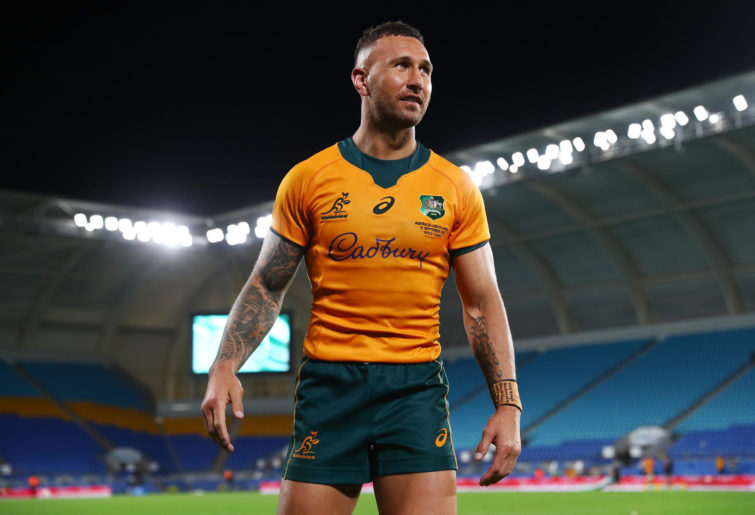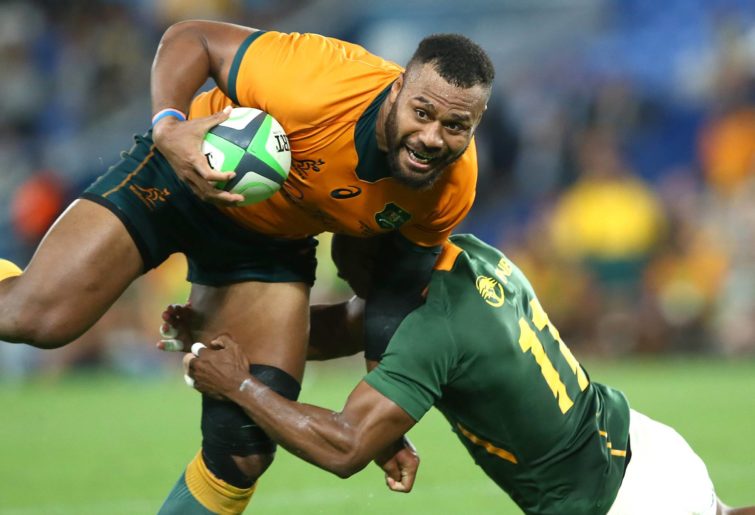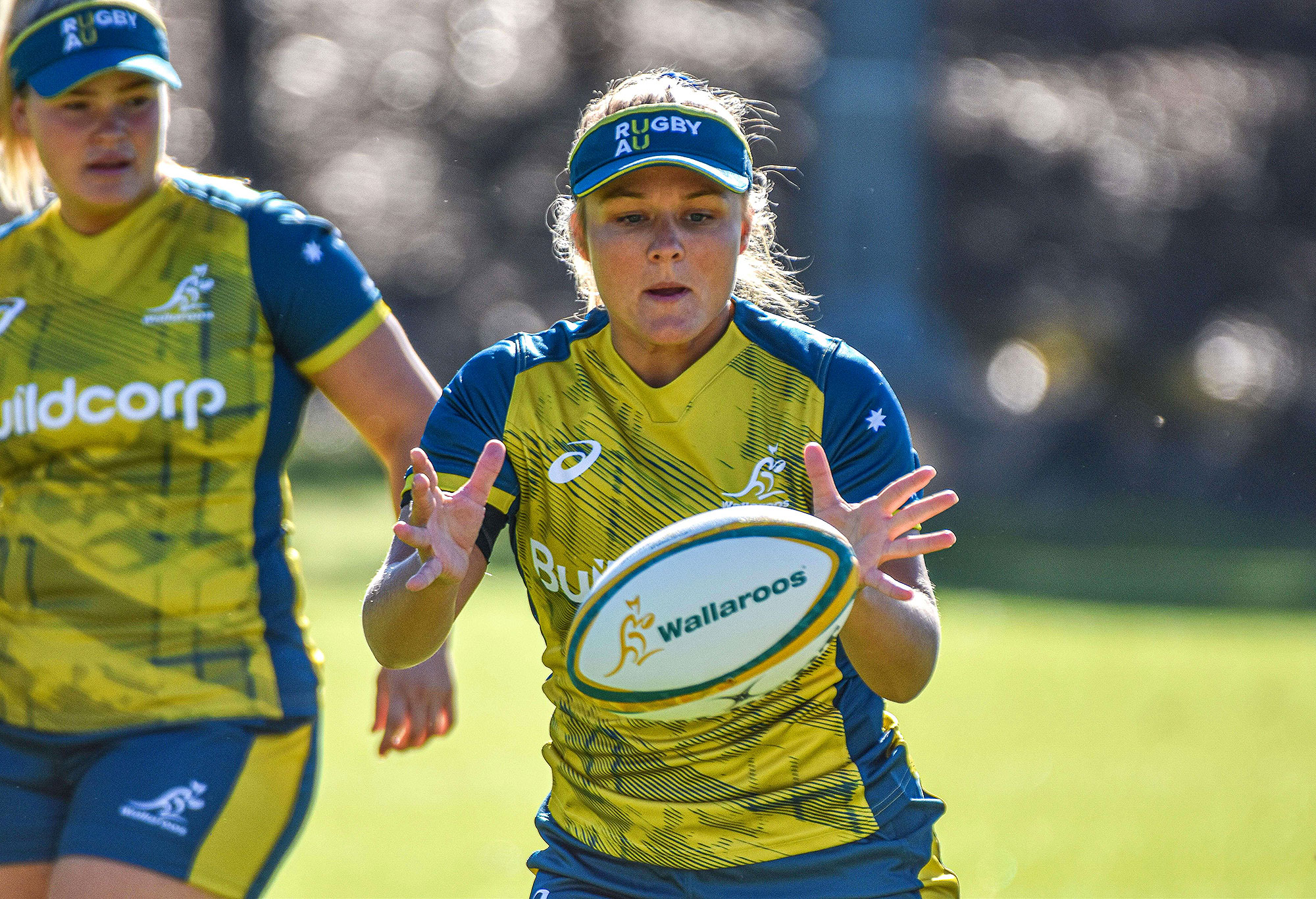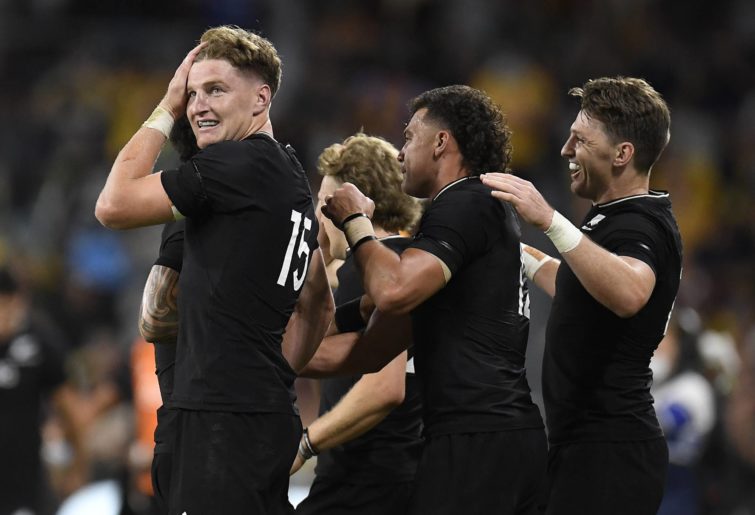Events in Australian rugby last week reminded me of that old chestnut where a horse walks into a bar and, looking for a pick-me-up, orders a beer. “Sure,” says the barman, “but why the long face?”
Wherever you looked last week, there were angry people with long faces. Coach Dave Rennie fronted a press conference on Thursday visibly down in the dumps. Players Quade Cooper and Samu Kerevi posted heartfelt, sorrowful messages on social media. Rugby Australia CEO Andy Marinos took a swipe at the lack of transparency of some players. Fans came out swinging against officious Japanese clubs and toothless World Rugby. Japanese club Suntory Sungoliath were said to be upset at receiving an injured player back and being painted as villains – and sections of the rugby media seemed to revel in the notion that Australian rugby had once again been plunged back into chaos.
The truth of the matter is that while people might have had good cause to feel grumpy, there is no catastrophe and there are no villains. This is simply professional rugby, as it is in 2021, playing itself out in all of its imperfection.
Rennie and his Director of Rugby Scott Johnson, made a concerted effort to cast a wide net this season, to get as many players on board as possible – local and overseas based – to broaden and deepen the base from which the Wallabies will mount their strike on the 2023 World Cup.
Aided by COVID restrictions limiting access to some local players, permission was received to do whatever was deemed best for the cause. Kerevi, Cooper and Sean McMahon joined the squad and, in the case of the first two, played vital roles in the dual defeats of the World Cup-winning Springboks, and the construct of a five-match winning streak.
The approach was to work informally with the players, hoping that a ‘softly softly’ approach, effectively parking World Rugby’s reg 9 to the side, would work in everyone’s favour, with the players ultimately being available for most of the international season.

(Photo by Chris Hyde/Getty Images)
When Kerevi was injured against Argentina, and subsequently made unavailable for selection against Japan, a few realities started to hit home. The Wallabies were happy for Kerevi to stay behind in Japan and rejoin the squad in time for the England Test, but by then, the damage had already been done.
Kerevi had spoken with his club, been reminded of where his sashimi was sliced, and was staying put.
Cooper’s situation was slightly different. A triumphant return to the Wallabies’ number 10 jersey has seen him go from yesterday’s man to the main man in the blink of an eye. But now looking to nurse himself through to another World Cup appearance in two years’ time, did the prospect of another three high-pressure Test matches in the UK, knowing that his club had already accommodated him playing five Test matches they wouldn’t have expected, really push the right buttons?
Why Rennie and Johnson are upset is that, having got the players into their environment, happy, settled and performing well, they over-estimated the pull of the Wallabies jersey and the culture that has been built within the squad. From all reports, the players love it; just not all of them, quite as much as was assumed.
Rennie and Johnson are right to focus their energy only on players who desperately want to wear the jersey, and who commit to their team culture. But this episode has also taught them that they should assume nothing. As worthy as their intent is, their expectations must be matched by commercial and contractual imperatives, and the very real conflicting demands that some players are faced with.
In truth, aside from mild embarrassment around consigning Noah Lolesio to a Brumbies pre-season and being forced to recall him, they shouldn’t feel so down on themselves. At the start of the season, nobody was anticipating any of Kerevi, Cooper, McMahon, Rory Arnold, Will Skelton or Tolu Latu to be playing for the Wallabies this year.
Instead, fans couldn’t stop talking about James O’Connor and the role he played in helping the Reds to the Super Rugby AU title. Yet here we are a week out from a Test match against Scotland, with O’Connor almost certain to run out at flyhalf, and we are supposed to believe that the sky is falling in?
From Kerevi, Australian rugby got an Olympics sevens campaign and five test matches. From Cooper, five Test matches. It is not stretching credibility to suggest that without both or either of them, the Wallabies would not have beaten the Springboks. Given that neither player is contracted to an Australian franchise, that’s a win in any man’s language.
Now, about to face three of the four home nations in successive weeks, the injection of Arnold, Skelton and Latu into an already promising pack, is another win. That is why calls to crack down on Japanese clubs, to enforce reg 9 to ensure that Kerevi and Cooper travel to the UK, are misplaced.
Do not underestimate the importance to the Australian rugby psyche, of the Wallabies turning around a bunch of losses to the All Blacks, into a run of wins. If the cost of that is not having Kerevi and Cooper for the rest of the campaign, and maintaining good relations with their clubs so as to gain future access, then that’s a cost worth paying.
This ‘crisis’ is more a storm in a teacup; a point reinforced by Rugby Australia board member Phil Waugh on Friday, when he said that these events were simply part of a “transition phase”.
Expect an outcome where, into 2022, the substance of Giteau’s Law will be retained – because the ability to fund and retain a professional, high-performance program in Australia depends upon it – and scope will be retained for a small handful of exceptions.
That is why, despite the hurt etched all over Rennie’s face and the sting attached to Marinos’ words, there is every chance that Kerevi and Cooper will again be seen in gold. It all depends on which local players step up in which positions, and where the Wallabies have a pressing need.

(Photo by Jono Searle/Getty Images)
Almost certainly, Rennie and Johnson will be made to work within tighter constraints. Informal conversations with players and clubs will continue, and it is natural that they will continue to try to talk players of interest into returning to Super Rugby. But from now on, when it comes to ensuring access to players who are contacted to overseas clubs, things will be formalised up front.
The long faces are understandable, but Australia is merely getting a taste of what the Pacific Island nations have endured for years. This is just another manifestation of rugby’s commercial and geopolitical global reality.
The size and value of the market for rugby in Australia is small, relative to other countries that are competing for its players. Rennie and Johnson, Kerevi and Cooper; nobody is at fault for trying to make the most of a difficult situation. National pride over this way, money over that way.
Ratification of a global season would help everybody identify and work within defined windows. But unless or until a massive injection of private equity capital persuades clubs that a greater good exists beyond their walls, and convinces national unions that tacked-on pay days against compromised opponents are no longer necessary, there seems little chance of progress being made.
Of more concern for Australian rugby should be the release of the spring Test schedule for women, which contains the world’s leading contenders minus Australia. This omission was hammered home even more by the Black Ferns releasing vision of an emotional team announcement, ahead of their 100th Test match, against England – notably shown live on BBC2.
Yes, there are excuses. COVID restrictions, Rugby Australia’s delicate financial position and the sudden, messy departure of Wallaroos coach Dwayne Nestor and assistant Matt Tink, in July, have all conspired to make things difficult.

(Image: supplied, Rugby Australia)
But with a World Cup due to kick off in less than a year, Australia runs the risk of being left in the wake of others, even potentially embarrassed, if it does not match up to nations that have targeted significant resources into their women’s high-performance programs.
Olympic gold medal winners in sevens in 2016, Australia knows better than anyone, the benefits that come from being able to leverage female junior and grass-roots participation off the back of the gold-medal star-factor of players like Charlotte Caslick and Ellia Green. We can only hope that Australia hasn’t already missed the bus.
Meanwhile in Cardiff, All Black Beauden Barrett bookended the occasion of his 100th Test match with an intercept try at each end, as the visitors steamrolled past Wales, 54-16.
It’s been well documented that this was far from Wales’ top selection; although many of the players missing were so because of injury as opposed to being on club duty. Asterix or not, there was a lot to like about the way the All Blacks studiously avoided shovelling the ball around behind the advantage line, and played more directly than in recent matches.
Intent on applying pressure on the Welsh ball throughout, there was a hunting and scavenging feel about their work, aided by much better balance and cohesion from the loose forward trio. With workhorses either side of him, Ardie Savea was able to find the ball and, numerous times, treat the Cardiff crowd to his signature leg drive.
Only in the final quarter did the razzle dazzle appear. And when it did, it included a superb try to Sevu Reece who was rewarded for working hard and staying in the play; today’s lesson for young players.

(Photo by Ian Hitchcock/Getty Images)
In fact, the whole of the All Blacks’ bench impressed. Not because they came on and tossed the ball around, but because they too played with discipline, and ensured – particularly through the irresistible Samisoni Taukei’aho – that they were working off front foot ball.
With only a blow-out score-line to show for their efforts, it was hard to find too many positives for Wales, although 21-year-old Taine Basham, in his first start at flanker, looks to have real promise.
Injured captain Alun-Wyn Jones was seen after the match chatting happily, without his arm in a sling, so perhaps the autumn may not yet be troublesome and dark for the Taffies.
What was troublesome and dark however, were the lengthy referee/TMO deliberations that were dotted throughout the match. Let us park the right and wrong of the decisions to the side, simply to note that TMO Brian MacNeice appears to be of the old school of TMO’s, who feels it is his job to make himself heard at every possible opportunity, and to push a perfectly competent and experienced referee around to his way.
Now that’s something worthy of a long face!
































































































